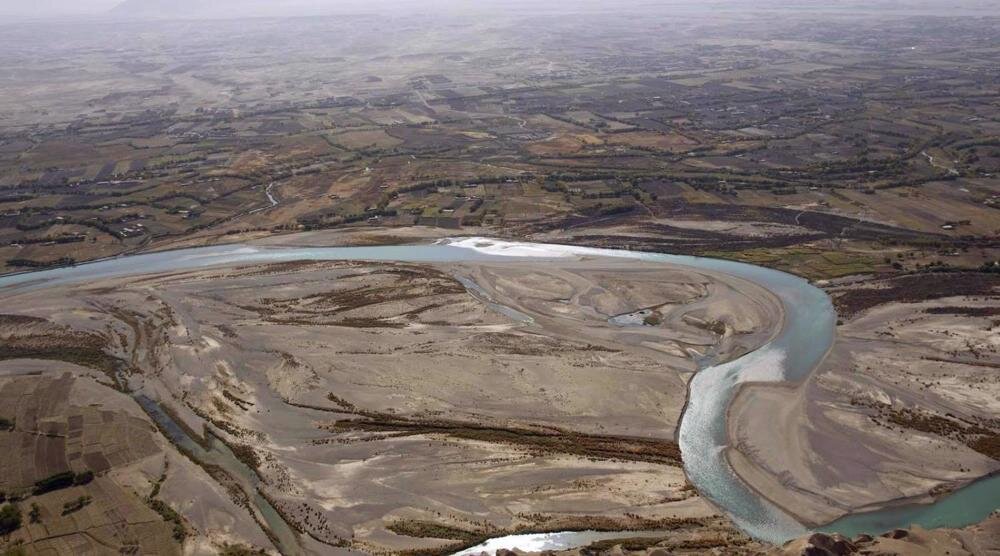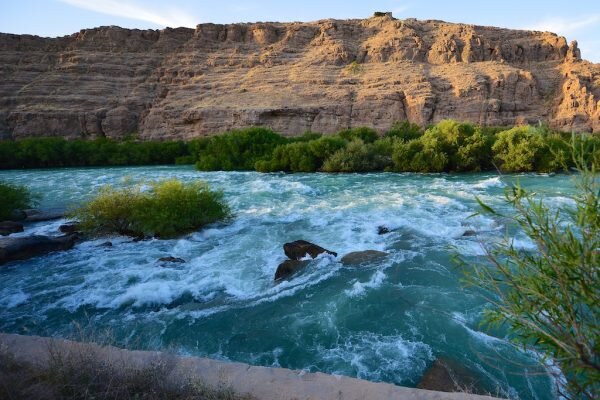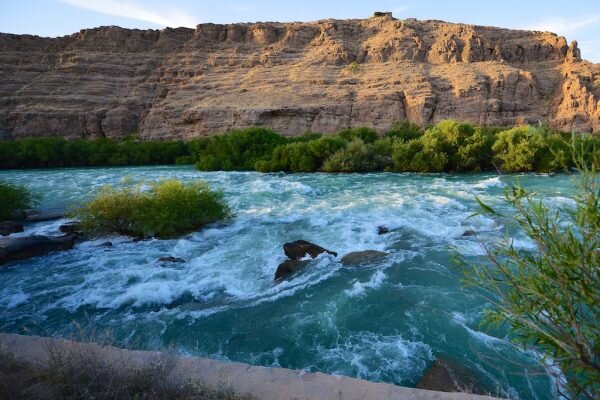Iran (IMNA) - Hossein Amir-Abdollahian made the comment in a Monday tweet in regard to his recent meeting with the Foreign Minister of the Taliban-run Afghan government, Amir Khan Mottaqi.
"We put a high priority on the issue of Iran's riparian rights to the Hirmand River during my recent talks with Mr. Mottaqi… in the city of Samarkand," Amir-Abdollahian added.
He went on to say that the Afghan side has also expressed its support for Iran's water rights, and that the two parties have "agreed to take immediate measures" in this respect.
The top Iranian official declared, "We won't trade-off Iran's water right."
Iran and Afghanistan have been embroiled in a lengthy water negotiations, preventing them from enjoying the enormous potential of bilateral commercial links.
The Hilmand River, which springs in the Hindu Kush Mountains near Kabul and flows 700 miles (1,126 kilometers) south before entering the Hamoun marshes in Iran's Sistan and Baluchestan region, lies at the center of the conflict.

The Hilmand River, which begins in the Hindu Kush Mountains near Kabul and flows 700 miles (1,126 kilometers) south before entering the Hamoun marshes in Iran's Sistan and Baluchestan region, is at the core of the negotiations.
In 1973, the two nations negotiated a water-sharing agreement on the Hilmand River, under which Afghanistan committed to send an average of 820 million cubic meters of water to Iran each year.
Iran has consistently chastised Afghanistan for failing to uphold the language and spirit of the pact.
The development of many hydroelectric projects on the river, most notably the Kamal Khan dam in Nimrouz province and the Kajaki dam 100 miles (160 kilometers) northwest of Kandahar province, has exacerbated the conflict.
In July, Iranian President Ebrahim Raeisi called for the "serious" pursuit of the country's water rights from the Hilmand River, urging foreign and energy ministries to prioritize the topic.



Your Comment